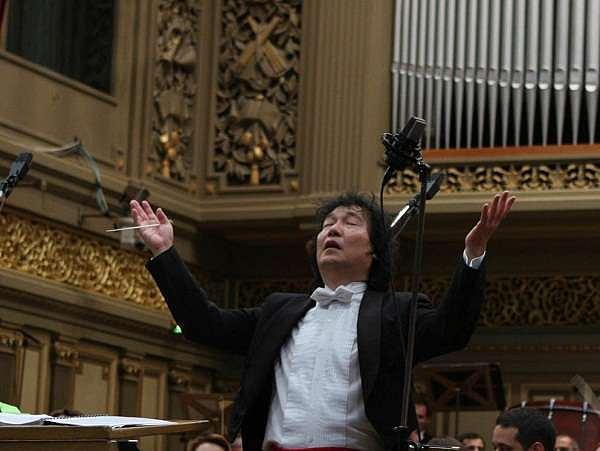Comment: A true lesson in leadership for Romania from Mahler and orchestra conductor Jin Wang

Often leadership issues are often blamed for errors or failings in Romanian policies, administration and economy. It is fashionable to discuss this topic and the are a lot of training sessions, workshops and conferences where leadership and how to implement it effectively in Romanian society is the main topic.
Many political or business people are proud of their studies in this field, but, the positive results are yet to be seen. Many graduates of the various MBA programs are appreciated, or appreciate themselves as being true leaders, but their professional results, if good, only prove adequate management, which is a different subject.
To be leader is much more than being a good administrator, a good manager. One of the golden rules of leadership, regardless of the area (policy, economic, business) is to be freely followed by people, giving them in return a vision, an objective, the means to reach it, self-confidence and respect. Of course in specialized literature, many more characteristics are mentioned but I'm sticking with this fundamental point as it came to mind last Friday. Not at a training/workshop/conference about leadership, instead it was a cultural event. The arrogant VIPs who believe in their leadership qualities may laugh at me and consider me naive, questioning the connection between such a difficult and professional topic and a cultural event, which is all about entertainment.
My answer for these skeptics is that connections can be found with an open mind, imagination and wide view of the interconnectedness of all processes in the world. That and, of course, the ability to see beyond the ends of our noses.
Last Friday I went to the Radio Hall for a performance by the Radio Hall Orchestra conducted by Jin Wang (in picture). On the program was Haydn’s First Symphony, Beethoven’s First Symphony and Mahler’s First Symphony. It was clearly a difficult program to perform successfully, as it isn’t common to perform three symphonies in the same concert, but, in my opinion, as a music lover, not as a professional expert, the pieces were very well chosen, taking the audience from the early Classical era to the late-Romantic period in orchestral symphony music.
The performance was a short history of music, which led the listeners from the 18th century of Haydn and Beethoven to the 19th century of Mahler, from Haydn’s classicism, passing by the Beethoven’s classicism – romanticism mix to the Mahler’s late romanticism. Listening to especially the Mahler’s symphony, which is more complex than the two previous pieces, I suddenly made a connection between the work of the conductor and the orchestra and the leadership process. Effective leadership, or lack of it, can be clearly seen and heard at an orchestral concert.
A conductor can be a professional manager of the team, the orchestra, but at the same time, he can be much more - a true leader. If the conductor is a great leader the results will be clear: the enjoyment of the audience.
Firstly, the conductor has his own vision about the way of performing the piece of music and secondly, he has a main objective to deliver a very good performance to the public. A good conductor knows that to achieve his objectives he must work professionally, but encouragingly with his team, which in this case is the orchestra. The way in which he must pay attention to and include each member of the team and every instrument gives the conductor a very clear leader’s role: putting people to work together for a clear, coherent and well-stated objective. Last, but not least, a conductor must know how to motivate every member of the orchestra and, the general result is shown by the quality of the performance and the satisfaction of those involved - the spectators (the customers) and the members of the orchestra (the team).
The Jin Wang’s vision was very personal. Short silent moments before each section began, which seemed to be meditation time. He is very interested in using a psychological approach to help the musicians gain a better connection with music, as he describes in The healthy psychology of the professional musician.
But what touched me most, giving me, at the same time, a new perspective on a musical event was the conductor’s attitude towards each member of the orchestra. At the end of each symphony, he asked members of the orchestra to stand up and presented them to the audience. Maybe, in this action, he was well supported by the music itself, because, especially in Mahler’s symphony, shows of all the instruments: woodwind, brass, percussion, and even the double bass, which rarely takes a leading part.
I think that people who want to find more about leadership should try a classical music concert and look carefully to the conductor’s work. Is this too idealistic? I don’t think so, it is very pragmatic, it is what experts call sharing of good practice.
By Mariana Ganea, Guest Writer
(photo source: Enescu Philarmonic website)















